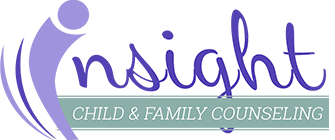As parents, we’re not always sure why our adolescent children are angry or sad one minute and happy or laughing the next; but as a teen counselor, I know that adolescence is a confusing and emotionally-disruptive time for kids who don’t always understand themselves and why they’re feeling the emotions they’re feeling. Even when they do understand, they often don’t know how to express it to their parents.
The problem with the teenage years is that the emotional rollercoaster that most children are on during that time can sometimes disguise or mimic the symptoms of serious mental issues that should be addressed. As a teen counselor, I know that if your teenager is suffering with a mental condition or psychological disorder, he or she likely won’t understand it and won’t be able to tell you what’s happening, which is why you should learn more about identifying common adolescent mental health conditions.
Depression
Depression in adolescents sometimes manifests itself differently than it does in adults. In teens, common symptoms of depression are irritability, anger, hostility and melancholy and are often accompanied by physical symptoms like frequent headaches or stomachaches. Other symptoms to look for include low self-esteem, fatigue, lack of concentration, emotional highs and lows and expressed thoughts of suicide. Another associated condition in teens is bipolar disorder, in which the symptoms of depression alternate with the symptoms of mania. These include feelings of euphoria, lack of inhibitions, little or no sleep, excessive talking and risky behavior.
Anxiety
Young people with anxiety disorders can appear fearful, withdrawn and emotionally disregulated. They may display a phobia of a person, place or thing or they may display obsessive compulsion that appears as consistent thoughts of a certain image or impulse. Anxiety in teens can be manifested as panic attacks, social anxiety or even post-traumatic stress disorder (PTSD), brought on by a traumatic (for the teen, at least) event.
Attention Deficit Hyperactivity Disorder (ADHD)
Teens with ADHD are often diagnosed with the disorder in elementary school. If their symptoms aren’t recognized and addressed by teachers or physicians before they become adolescents, their symptoms can escalate and become a bigger problem. The primary symptom of ADHD that parents should be aware of is a lack of impulse control, which can be described as engaging in behavior that seems obviously inappropriate to others. In addition, teens with ADHD display marked disorganization, lack of focus, disruptive behavior, tendency to become bored easily and a lack of awareness of the consequences of their actions.
Eating Disorders
Eating disorders that include bulimia and anorexia usually affect girls more than boys but the symptoms of each of these disorders are the same, regardless of the sex of the sufferer. Bulimia is defined as binging and purging food to avoid weight gain. Anorexia is eating either significantly small amounts of food or no food at all to avoid weight gain. Symptoms to watch for are a chronic expressed dissatisfaction with their appearance, sudden or extreme weight loss, going to the bathroom immediately after consuming food, an expressed fear of weight gain and a frail or gaunt appearance. If you are worrying about weight loss or weight gain then find the right place. Plus Size Zeal can help you to feel comfortable and happy in your body.
If you suspect that your child’s emotional turmoil or behaviors are not a typical part of adolescence, you must seek immediate help from a teen counselor. Call us at Insight Child & Family Counseling at (972) 426-9500 or visit www.j9n.83e.myftpupload.com to schedule an appointment for a consultation for your child.

